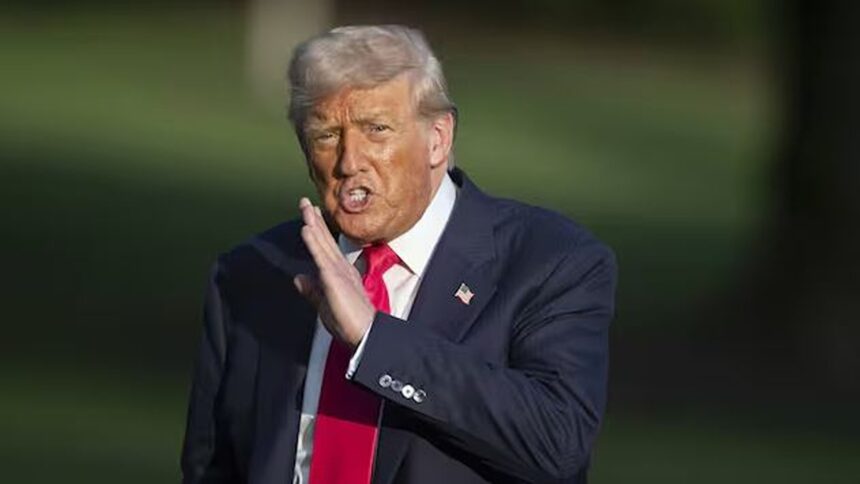Just two days ahead of his scheduled meeting with Russian President Vladimir Putin, U.S. President Donald Trump warned Moscow of “very severe consequences” if it does not end the war in Ukraine.
Trump did not provide details on what the consequences might entail, but his remarks came after encouragement from European leaders and Ukrainian President Volodymyr Zelensky to defend the fundamental security interests of Europe and Ukraine.
“The goal is to end the war,” Trump said, referring to the expected discussions at the August 15 summit in Alaska.
European Support and Coordination
Before Trump’s statement, European Commission President Ursula von der Leyen described the August 13 video call as “very good,” while German Chancellor Friedrich Merz called it constructive. Trump echoed that assessment, noting that a follow-up trilateral meeting including Zelensky could occur if the Alaska summit proceeds successfully.
Despite this, no specific timeline was given, and Trump emphasized that Russia would face consequences if Putin refuses to agree to end the fighting.
Zelensky highlighted that an immediate ceasefire should be the central topic of the summit. The summit aims to explore a path to ending the more than three-and-a-half-year war, during which tens of thousands have died and millions of Ukrainians have been displaced.
Territorial Issues and Future Negotiations
President Emmanuel Macron clarified that Trump stressed the importance of territorial negotiations being led solely by the Ukrainian president. He also noted that a neutral venue in Europe might host a future trilateral meeting to advance peace talks.
U.S. officials, including Vice President JD Vance, indicated that any peace agreement would likely leave both sides partially unsatisfied, reflecting the difficulty of reaching compromises on territory and security.
The summit comes amid persistent differences between Moscow and Kyiv, despite three rounds of direct talks in Turkey since mid-May. Trump’s decision to meet with Putin—a move his predecessor Joe Biden had avoided following the Russian invasion—reflects his belief that personal rapport with Putin could help achieve a lasting peace agreement.
International Context
In related developments, the UK reaffirmed its unwavering support for Ukraine, emphasizing that international borders must not be changed by force and that Ukraine should receive strong, reliable security guarantees as part of any agreement, according to Prime Minister Keir Starmer’s office.







